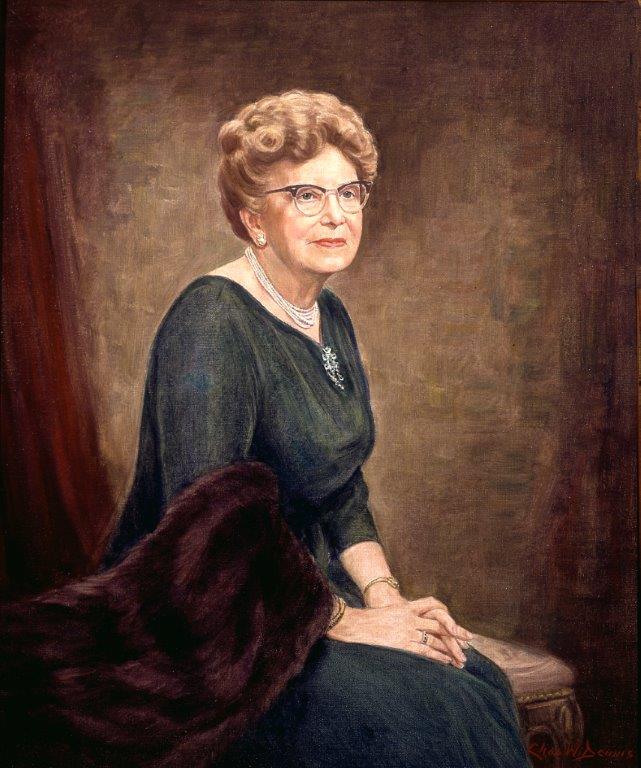AARP Hearing Center

AARP was founded on the simple premise that no one should have to live in a chicken coop. The shocking discovery of a distinguished former teacher living in poverty inspired our founder to devote the rest of her years to improving the quality of life for all as they age.
It all began one Saturday, when Dr. Ethel Percy Andrus received a telephone call from a shop-keeper 30 miles outside of Los Angeles. He had read in the newspaper that Dr. Andrus had been appointed to the California Retired Teachers Association’s committee on retired teachers’ welfare, and asked if she could check up on an old woman in his neighborhood who needed food, eyeglasses and teeth. He provided the woman’s address.
Dr. Andrus drove out to the neighborhood and tried to find the woman, but she was unsuccessful. As she was about to leave the area, a neighbor stopped her and said, "Oh, you must be looking for the woman 'in back' -- living in the chicken coop.
Here is the rest of the story, as told later by Dr. Andrus herself.
“I knocked on the sagging door of the windowless shed, and assured the answering voice that I had come to say ‘Howdy’—one teacher to another—and I asked if I might not come in. I waited for the door to open and when it did, my hostess slipped through and closed the door behind her. In an old coat much the worse for both age and wear, a woman withered of skin, with sunken cheeks but with the bluest and merriest of eyes, she looked me over—smiling at me, putting me at my ease, while she inquired of my errand.
“‘Just a friendly visit,’ I said, and I told her my name. Curiously enough, she knew it, and more curiously, I recognized hers when she told me it, and recalled her reputation as a Spanish teacher of some distinction.
"She told me her story. Thriftily she had saved money enough to buy on installments some scenic acreage in Montrose, a charming section above Glendale. This she planned to subdivide and so, accepting her $40-a-month teacher retirement, she started out on her second career. But alas, the Depression took away all opportunity for sale, and a devastating flood washed away the approaches to the property.
“She saw her high hopes disappear with it. There was no chance of re-employment. When the installments came due, she lost the property. She still had her $40 a month to live on, and courageously she decided to make that do. She dropped from her friends’ sight and memory.”
Old Age Needs Care—and Something More
“[My mother, in her 90s] said to me one day, quite seriously, ‘I have been thinking a great deal lately about old age. Old age, Ethel, needs care as youth needs care, but it needs something more. It needs the desire to live, to continue planning, and striving hopefully, to keep working at something worthwhile, and then when at last old age becomes dependent, it needs someone to still care or, if there is no one to care, there should be community care which can make it easy to help those who now cannot help themselves to keep their dignity and their self-respect.’
“I listened. I wondered what until then I really knew about aging.
“From my friend of the chicken shed I learned that the inner strength with which she met hardship can make even penury bearable, that there may be great wealth in spirit with little in the purse. Even though we judged her case ‘pitiful,’ she did not feel a victim.
A Mission Takes Shape
To help older Americans lead lives of independence, dignity, and purpose—Dr. Andrus founded first the National Retired Teachers Association (NRTA) in 1947 and later AARP in 1958 and the conversation about aging in America changed. The Association galvanized older Americans who believed in her goal of dynamic maturity. “We don’t get old—we grow old—we mature,” she said. “If we ever stop growing, then we’ve had it.”
She asserted that AARP’s collective purpose was and is “to help aging folk realize life’s possibilities.” She focused on developing solutions, widening opportunities, and upending negative aging stereotypes. She engaged millions of AARP members “To Serve, Not to Be Served,” volunteering in “the great army of service” and exercising their civic responsibilities. “If we are not content with things as they are,” she said, “we must concern ourselves with things as they might become.” AARP gave older persons a collective voice to advocate pension reform, affordable health care, improved housing, and an end to age discrimination.
Dr. Andrus harnessed AARP’s collective purchasing power to make available products and services that filled critical market gaps and enhanced the lives of our members. A leader in the first aging revolution and one of the pre-eminent social change leaders of the 20th century, Dr. Andrus helped all Americans to understand that “age is not a defeat, but a victory; not a punishment, but a privilege.”
Today in Washington, D.C.—and in states and communities—AARP is building on Dr. Andrus’ history of solutions to fight for and equip each individual to live their best life.
Sign up to become an AARP activist and you’ll receive email action alerts on the issues you care about. Visit www.aarp.org/getinvolved































































